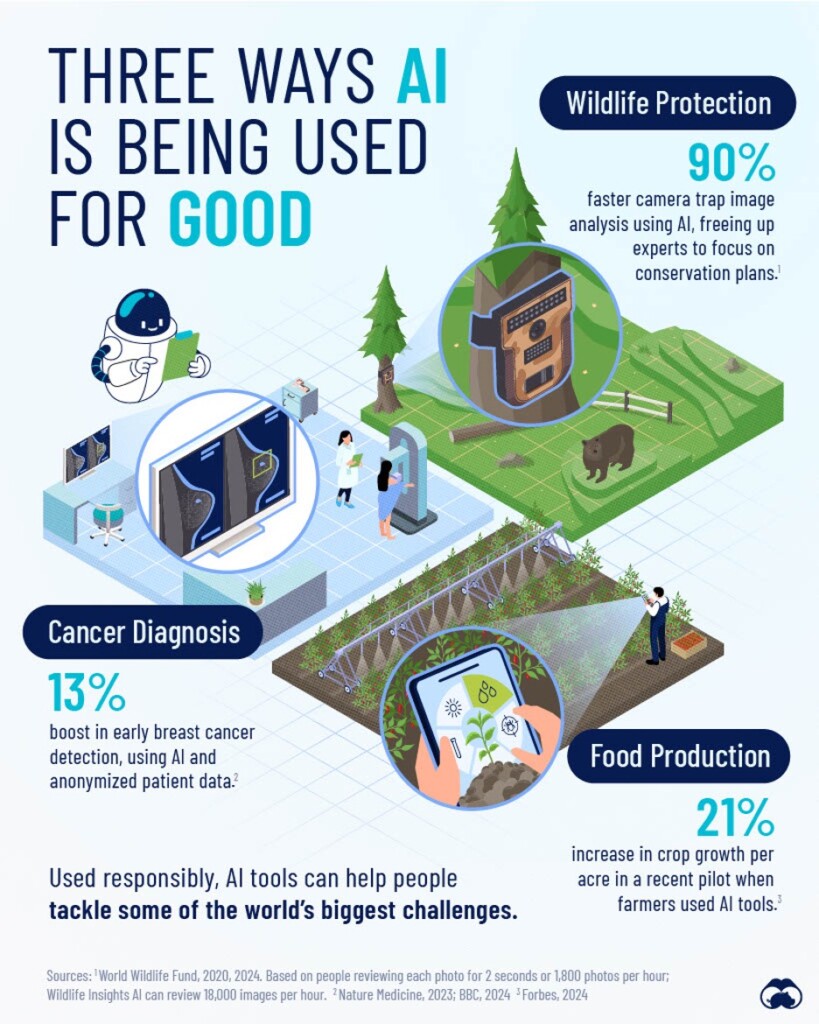Artificial intelligence (AI) is not just another tech trend. It holds tremendous promise for society. From detecting tumors invisible to the human eye to boosting food production yields and aiding wildlife conservation efforts, AI has already had a profound and tangible impact, with even greater potential ahead. In healthcare, AI tools like Mia are revolutionizing early cancer detection, giving patients a better chance of recovery and reducing the need for invasive treatments. In agriculture, programs like India’s Saagu Baagu use AI to provide real-time advice and soil analysis, boosting crop yields by 21 percent while reducing pesticide and fertilizer use and making farming more productive and sustainable. In wildlife conservation, platforms like Wildlife Insights process thousands of images from camera traps, allowing conservationists to monitor species in real-time and accelerate efforts to protect endangered wildlife. AI’s proven success across these areas highlights its vast potential to drive positive societal change.

However, as we previously outlined, bringing these AI systems to market requires investments that are often beyond the reach of smaller companies innovating in this space. Whether AI will fulfill its promise to serve the public good now partly rests in the hands of competition authorities, who appear to equate public benefit with restricting much-needed investment in AI technologies.
We must question whether enforcement agencies’ heightened sensitivity on potential competition risks in AI markets might slow down this transformative technology and ultimately be harmful. Laws and enforcement actions rooted in proven theories of harm and empirical claims is the need of the hour.
One key factor that enables AI’s growth is investment. Large companies have the resources to fund long-term research, build foundational AI models, and provide the infrastructure smaller businesses need to innovate. This market-led investment is pro-competitive, as it makes resources accessible to smaller firms, a point recognized by Margrethe Vestager in her speech at the European Commission workshop. Startups and small businesses gain access to powerful AI technologies without the need for large upfront investments. In turn, they use AI to develop competitive, innovative solutions that benefit both businesses and consumers. However, without such foundational investment, many of these innovations wouldn’t be possible.
This isn’t to say that AI markets should operate in a governance black box. On the contrary, we need smart policies that foster innovation. But public policy must be nuanced, especially considering how aggressive messaging from policymakers can dampen the investment climate.
By helping all businesses—big and small—have access to the resources they need, regulators can foster a competitive market that drives innovation. The goal should be to build a healthy AI ecosystem where large firms provide foundational infrastructure and smaller players bring new ideas to the table.
The future of AI is bright, but only if we make the right choices today.